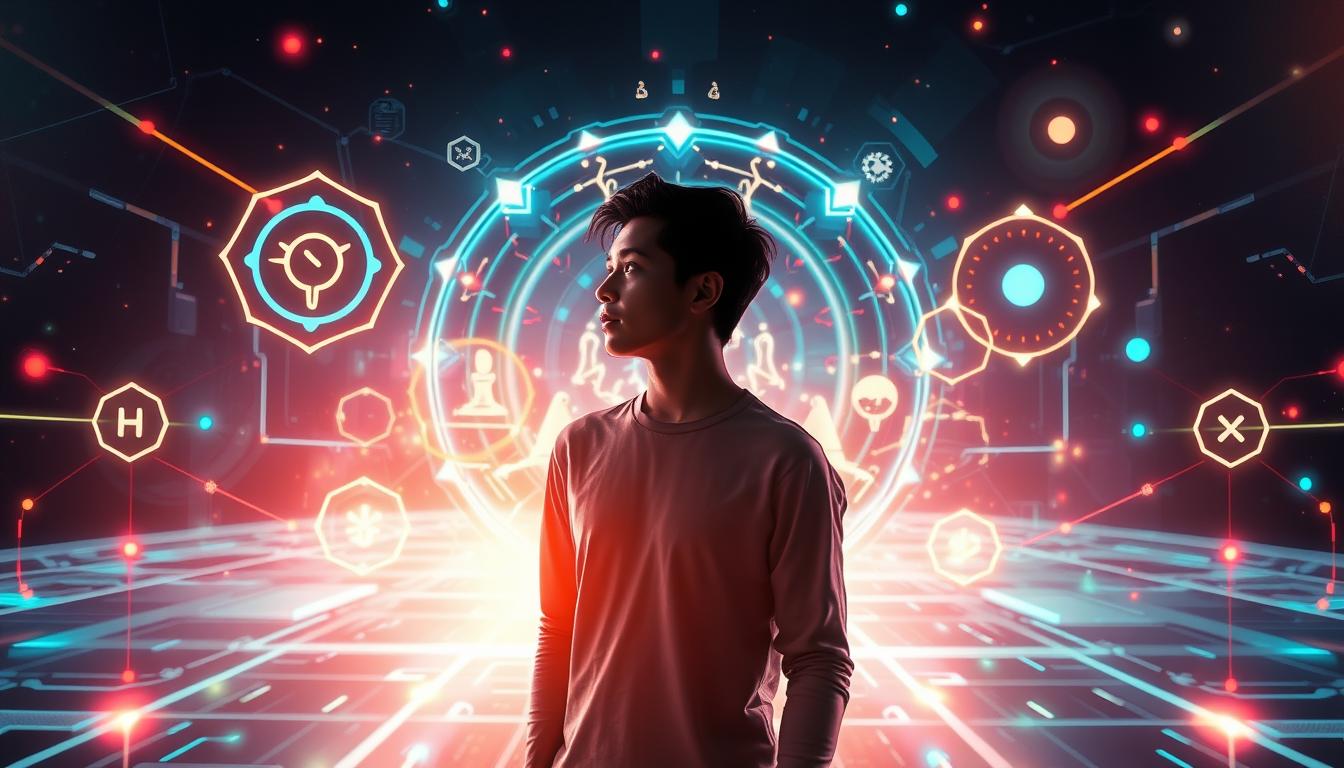Many people believe AI coaches can fully replace human insight, but they lack emotional understanding and intuition, making them imperfect guides. Privacy concerns also come into play, as sharing sensitive data requires trust in the platform’s security. While AI offers valuable tools like progress tracking, it can’t replicate genuine empathy. Expect some advice to be outdated or less relevant. By understanding these myths, you’ll better harness AI’s strengths—and there’s more to uncover if you keep exploring.
Key Takeaways
- AI coaches are tools that assist but do not replace human intuition and emotional understanding.
- Privacy concerns are valid, but reputable AI developers implement strong data security measures.
- AI cannot replicate genuine empathy or emotional nuance, so human connection remains essential.
- AI advice depends on data and algorithms, making it prone to outdated or less relevant guidance.
- Use AI coaches as supportive tools, understanding their limitations and setting realistic expectations.

Artificial intelligence coaches are often misunderstood, with many myths circulating that can mislead users about their capabilities and limitations. One common misconception is that AI coaches are infallible sources of advice, capable of understanding every nuance of your personal situation. In reality, AI has its limitations. While they excel at processing large amounts of data quickly, they lack human intuition and emotional understanding. This means they can sometimes miss subtle cues or context that a human coach would catch. Recognizing these AI limitations helps you set realistic expectations; they are valuable tools but not substitutes for human insight.
AI coaches have limitations; they process data well but lack human intuition and emotional insight.
Another significant concern people have about AI coaches involves privacy. It’s easy to worry about what happens to your data once you share personal information with an AI system. Many believe that using an AI coach automatically compromises their privacy, but that’s not always the case. Responsible AI developers implement strict privacy safeguards, such as encryption and data anonymization, to protect your information. Still, it’s essential to be aware of the privacy policies of the platform you’re using. Never share more personal data than necessary, and verify how your data is stored and used. Understanding privacy concerns helps you make informed choices about engaging with AI coaches, ensuring your sensitive information remains protected.
Additionally, some assume AI coaches can replace human connection entirely. This myth can lead to disappointment because AI, despite advancements, can’t replicate genuine empathy or emotional nuance. They can provide structured guidance, track progress, and offer motivation, but they lack the ability to truly understand complex human emotions or offer compassionate support in the way a human coach can. Knowing this helps you use AI as a supplement rather than a replacement for human interaction, enhancing your overall growth instead of replacing meaningful relationships.
Many also believe AI coaches are always up-to-date or universally applicable. However, AI systems are only as good as the data they’re trained on and the algorithms powering them. Sometimes, they might provide outdated or less relevant advice, especially in specialized or rapidly evolving fields. It’s important to cross-check AI-generated insights with other reliable sources, rather than relying solely on the AI.
Frequently Asked Questions
Can AI Coaches Fully Replace Human Coaches in All Scenarios?
AI coaches can’t fully replace human coaches in all scenarios because they lack human empathy and emotional nuance. You need that genuine understanding and connection for deeper coaching moments, which AI can’t replicate. While AI can handle data-driven tasks and provide consistent support, your growth often depends on emotional insight and personalized feedback that only a human coach can deliver. So, AI is a helpful tool, but not a complete substitute.
How Secure Is My Personal Data When Using AI Coaching Platforms?
Your personal data is generally secure on AI coaching platforms thanks to data encryption and strict privacy policies. These platforms use advanced encryption methods to protect your information during transmission and storage. Additionally, they adhere to privacy policies that limit data access and outline how your data is used. However, always review the platform’s privacy policies yourself, stay informed about their security practices, and avoid sharing overly sensitive information unless you’re confident in their protections.
Are AI Coaches Effective for Mental Health Support?
AI coaches can be effective for mental health support, especially because they offer emotional empathy and personalized guidance. You’ll find that these platforms adapt to your needs with high personalization accuracy, helping you feel understood and supported. While they may not replace human therapists, they’re valuable for everyday mental wellness, offering accessibility and consistent encouragement. Use AI coaching as a supplementary tool to enhance your mental health journey.
What Industries Benefit Most From AI Coaching Technologies?
Over 70% of Fortune 500 companies use AI coaching for leadership development and sales training, making these industries prime beneficiaries. You’ll find AI coaches enhancing leadership skills, streamlining coaching sessions, and personalizing training programs. They help you identify strengths and address weaknesses efficiently. By integrating AI coaching, you can accelerate growth, improve performance, and stay competitive in fast-evolving fields like corporate leadership and sales.
Do AI Coaches Understand Cultural Differences in Coaching Approaches?
AI coaches can incorporate cultural sensitivity and support coaching diversity by analyzing data from various cultural backgrounds. While they don’t truly understand culture like humans do, they’re programmed to recognize and respect different coaching approaches. You should guarantee your AI coach is trained with diverse data, so it can adapt its coaching style appropriately. This helps foster inclusive, effective coaching experiences that honor cultural differences, making your coaching more personalized and respectful.
Conclusion
Now that you know the truth about AI coaches, don’t let myths hold you back. They’re here to assist, not replace, your human touch—think of them as your trusty sidekick in the digital age. Just like the advent of the printing press, AI coaching is transforming how we learn and grow. Embrace the future with confidence, knowing these tools are designed to empower you, not threaten your uniqueness. The future’s bright—so, go ahead and make the most of it!









